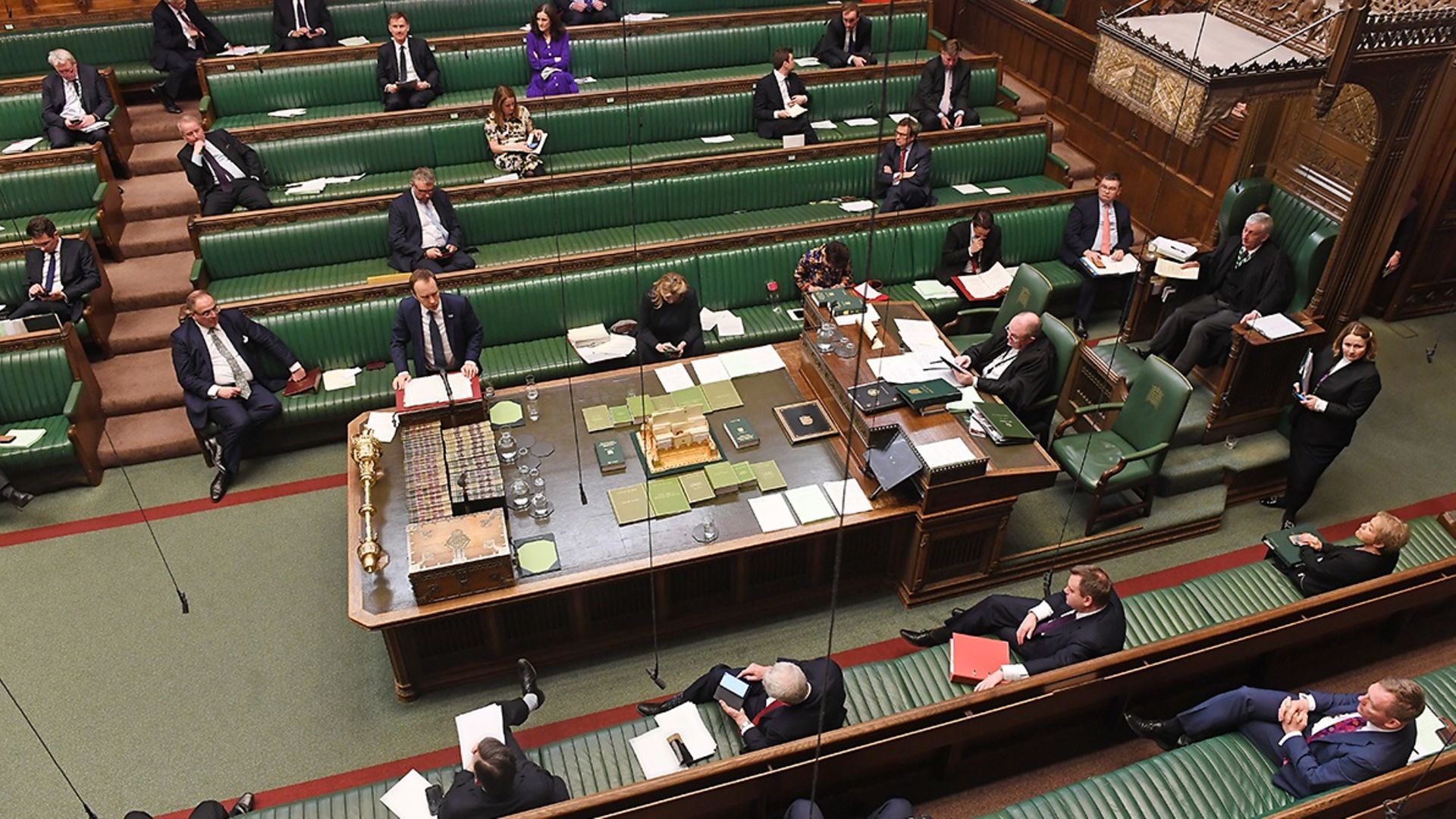
MPs have for a second time overturned measures from peers aimed at protecting UK food standards in future trade deals.
The House of Commons voted 331 to 272, majority 59, to disagree with a House of Lords amendment to the Agriculture Bill which sought to ensure imported foodstuffs met equivalent benchmarks to those followed by UK producers.
This would have related to animal welfare, environmental protection and food safety.
MORE: These 330 Tory MPs voted against protecting food standards after Brexit
Instead, MPs backed a government amendment to the Bill to increase parliamentary scrutiny of free trade agreements and for extra detail on how measures are consistent with maintaining UK standards.
Separately, a commission advising the government on trade policies it could adopt to secure new opportunities for UK farmers will also be put on a statutory footing.
The remit of the Trade and Agriculture Commission (TAC), which represents UK farmers, retailers and consumers, is being extended past its previous fixed term.
It will produce a report on the impact on animal welfare and agriculture of each free trade deal the government signs after the end of the EU transition period on January 1 2021.
The Lords has repeatedly demanded quality safeguards on imported agricultural and food imports to prevent British farmers being undermined.
The legislative tussle – known as parliamentary “ping pong” where legislation is passed between the two Houses – comes amid continuing concerns over chlorinated chicken or hormone-treated beef entering the UK market from the US.
Speaking as MPs considered the Lords amendments, environment minister Victoria Prentis said: “It’s proved very difficult to find the right form of legislative words to protect our standards.
“It’s important that we comply with WTO (World Trade Organisation) rules and that we don’t impose impossible conditions on future trading partners.
“I feel that following gargantuan efforts of many people, we have got to a sensible compromise.
“My concern about (Lords) amendment 16b is that it would cause problems as drafted for our negotiators and impose burdensome administrative measures on our trading partners.
“Demonstrating equivalence of standards is a complex and technical task which involves delving deeply into the cow sheds and chicken huts and legislatures of other nations. I feel that our amendment in lieu is a better way to achieve the goal.”
She added: “We stood on a clear manifesto commitment that in all of our trade negotiations we wouldn’t compromise on our high environmental protection, animal welfare or food standards.”
Shadow environment secretary Luke Pollard said the government has “two competing food agendas” when it comes to food standards.
He welcomed concessions on Labour calls for the TAC to be put on a statutory basis by means of an amendment to the Trade Bill.
Pollard added: “We know that the international trade secretary and the environment secretary have not always agreed over food standards and the truth is I that don’t trust the Department of International Trade not to break any promises once this Bill been passed.
“So, I think it is very clear that despite having one Government, we sometimes have two competing food agendas.”
Conservative former environment secretary Theresa Villiers said the UK should not sell itself short on food and groceries.
She told the Commons: “Whilst the debate on the Agriculture Bill is drawing rapidly to a close, the task of scrutinising UK trade negotiations is only really just beginning and will require continued vigilance by all of us in this House.
“We must ensure that our negotiators stand firm and refuse to remove any of the tariffs that currently apply on food unless it’s produced to standards of animal welfare and environmental protection which are as good as our own.
“The UK market for food and groceries is around the third largest by value in the world. Greater access to it is a massive prize for any country, we should not sell ourselves short.”
The bill will return to the Lords for further scrutiny.
Warning: Illegal string offset 'link_id' in /mnt/storage/stage/www/wp-includes/bookmark.php on line 357
Notice: Trying to get property 'link_id' of non-object in /mnt/storage/stage/www/wp-includes/bookmark.php on line 37






